Top 20 in order watched:
*Click on the titles for full reviews
Life and Nothing More... (1992) - kiarostami
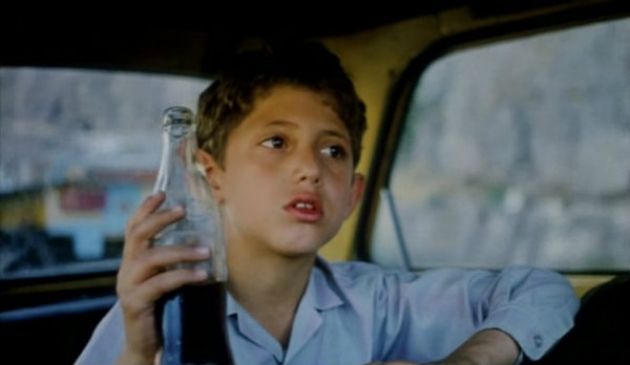
Kiarostami's moving picture continues. A middle aged man and his young son are on the road to Koker, a northern rural town leveled by the devastating earthquake in 1990. It is only revealed later on that the man is a film director (a Kiarostami stand-in) who is looking for a child actor who starred in his previous film, Where is Your Friend's Home? (AK's 1987 film also taking place in that region). As they encounter monstrous traffic jam and many victims of the 'god's will', the line between reality and fiction evaporates: the traveling pair encounters an old man who was also in the said film, carrying a porcelain sink to his house amid devastation around him. He explains, "You never know when you need it." When asked if the big house he is entering (but doesn't have a key to) is his, he replies, "This is not my house. It's only my house in this film. My real house collapsed in the earthquake."
Shot shortly after the real earthquake that took the lives of 50,000, and based on his own experience driving around (with his real son), Life and Nothing More... shows resilience of the people amid a horrible disaster. As they make ends meet, digging out their household items from debris, they still look forward the better future. They fidget a TV antennae to watch a World Cup match in ruins. With Through the Olive Tree (a fictional 'making-of' Life and Nothing More...) as the third film taking place in Koker, these films are seen as the Koker Trilogy. There are many elements here that are present in his later films: interior driving shots, wide scenery long takes, no close-ups. Elegantly simple and captivating throughout with an open ending, Life and Nothing More... is a beautiful film.
Taste of Cherry (1997) - Kiarostami
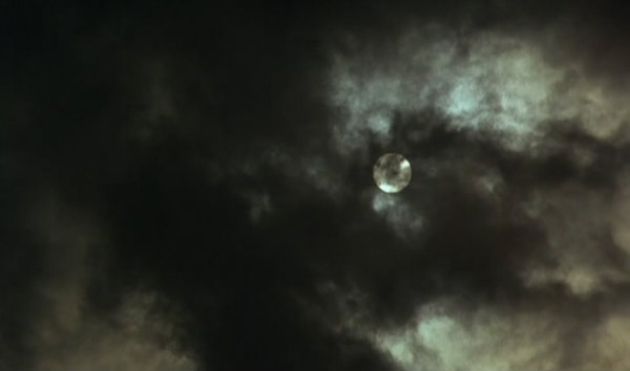
Inquisitive dialog, just like intimate questionnaires in documentaries is where it's at with all Kiarostami's films, staged usually in moving cars. The beauty of Taste of Cherry lies in its simplicity- a man drives around looking for someone to assist him in his suicide. They don't have to do the deed. He will take sleeping pills and lie down in an already dug up grave. In the morning, they can put some earth on him if he's dead. They will be rewarded handsomely. First, a young soldier runs away after finding out what the man is up to. Second, a seminary student from Afghanistan objects because of his religious beliefs and tries to dissuade him. Finally, an old taxidermist agrees to it, because he has a sick child.
Kiarostami lets us know that we are watching a film. With Louis Armstrong's St. Jame's Infirmary playing at the end over the image, he tells us that death is inevitable for all of us and makes us think. His cinema is precious because it doesn't resemble any other. If Tarkovsky tried to make us feel the 'passage of time' with his virtuosic camera movements, framing and lighting, Kiarostami succeeds in astounding simplicity, in one hour and forty minutes. Life is a moving car. Done. The impact is still immense. The abrupt intrusions of continuity in the middle and at the end are quite delicious in cinematic terms. It all fits nicely with his theme of life, death, cinema, reality... just amazing!
Hadewijch (2009) - Dumont
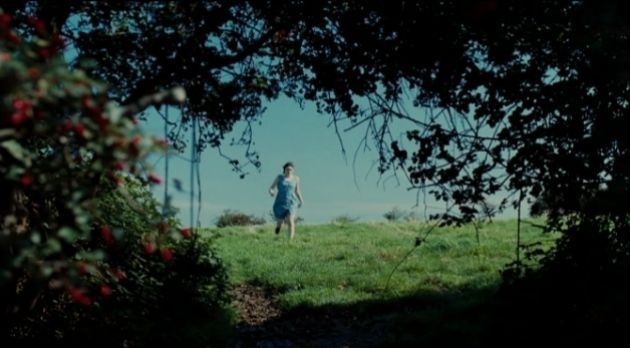
Austere and sincere. Another masterpiece from Dumont.
The White Ribbon (2009) - Haneke
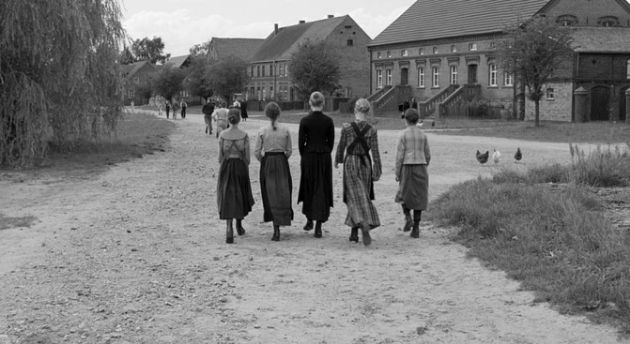
Masterful examination on the existence of 'innocence'.
It's the Earth Not the Moon (2011) - Tocha
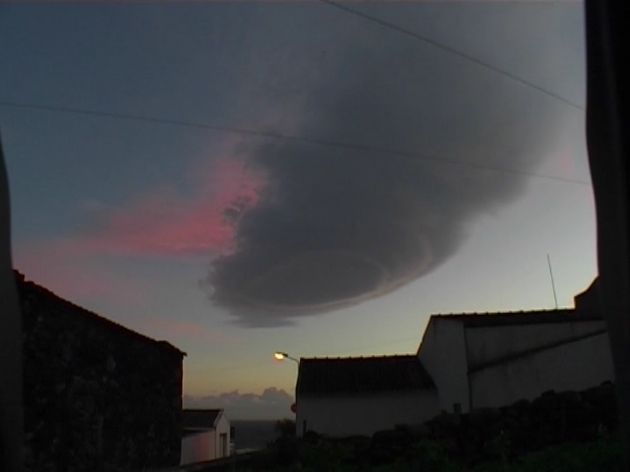
Loved every single moment of this 3 hour Portuguese documentary.
Le pont du nord (1981) - Rivette
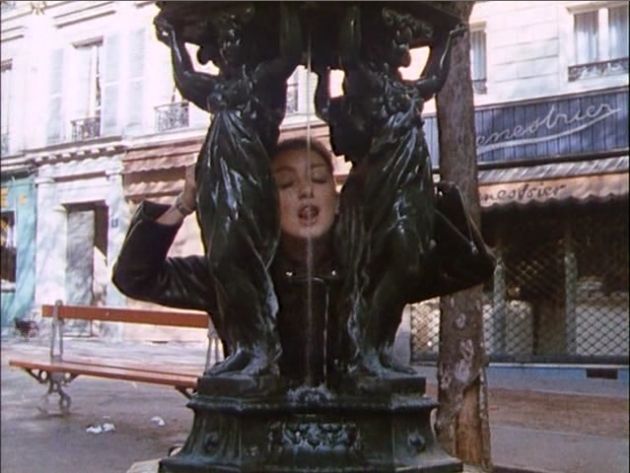
Loveliness of Pascal Ogier is just an icing on the cake in this playful comedy by one of the unsung heroes of French New Wave.
La captive du desert (1990) - Depardon
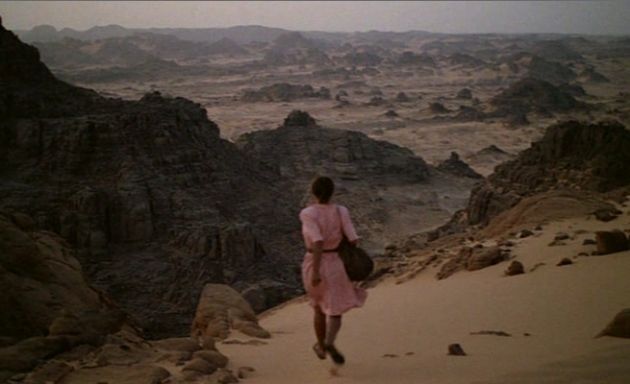
Desert + Sandrine Bonnaire = cinematic heaven
Céline et Julie vont en bateau (1974) - Rivette
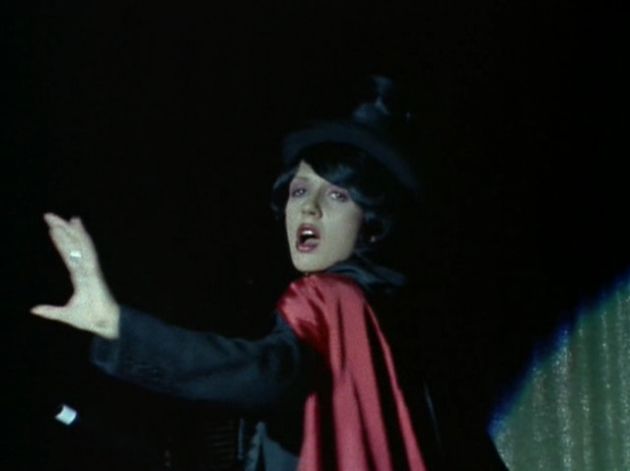
One of the classics I hadn't seen that I was able to get to this year. It lives up to all the praises.
A Nous Amours (1983) - Pialat
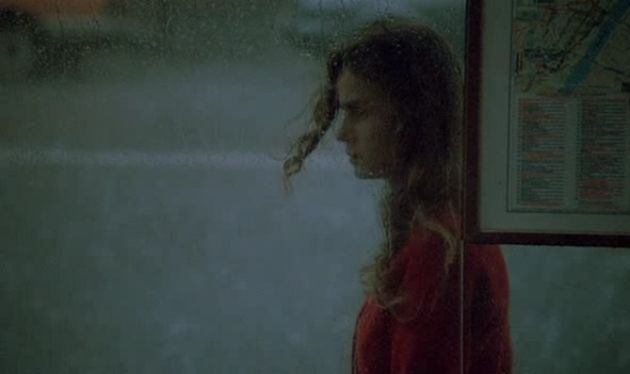
One of the best cinema debuts ever- 16 year old Sandrine Bonnaire ignites the screen. Pialat's uncompromising direction goes down in my book as one of the best coming of age movies of all time.
Coup de Torchon (1981) - Tavernier
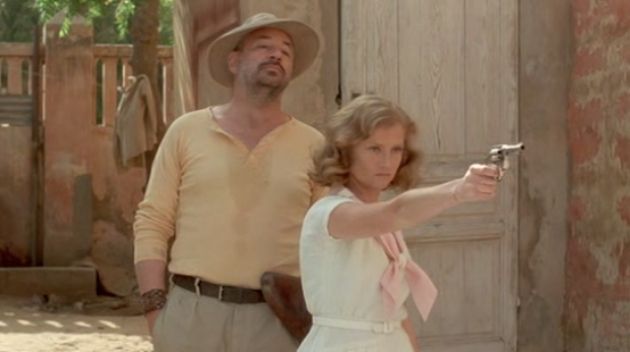 The most hilarious Jim Thompson adaptation ever!
The most hilarious Jim Thompson adaptation ever!Emperor's Naked Army Marches On (1987) - Hara
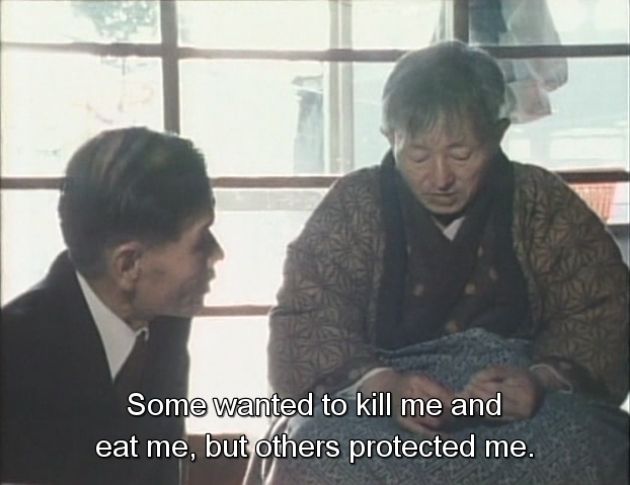
Crazy documentary. You can totally see the continuation of Japanese New Wave in this anti-gov/anti-war film.
Peppermint Candy (1999) - Lee
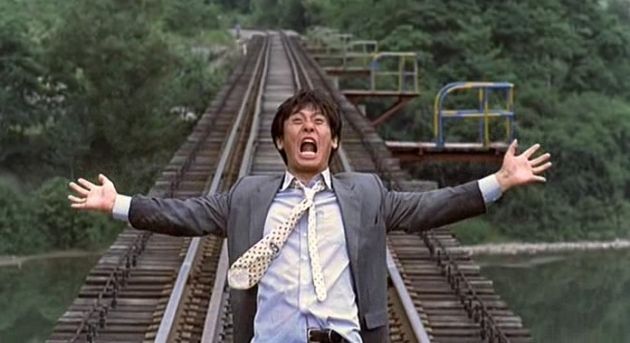
Dehumanization of a man who experienced the Gwangju Massacre in Korea, 1980, told in reverse timeline. It's definitely the best Korean film I've ever seen.
City of Sadness (1989) - Hou
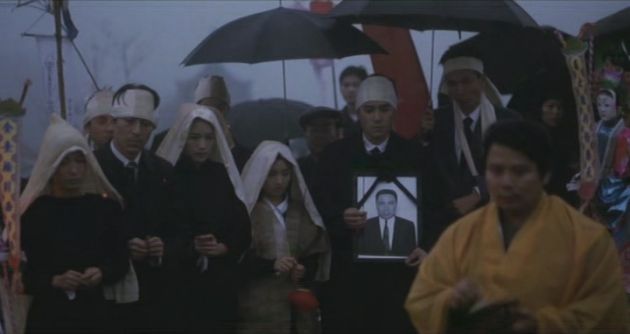
Hou's history lesson of Taiwan is masterful and affecting.
Mon Oncle Amerique (1980) - Resnais
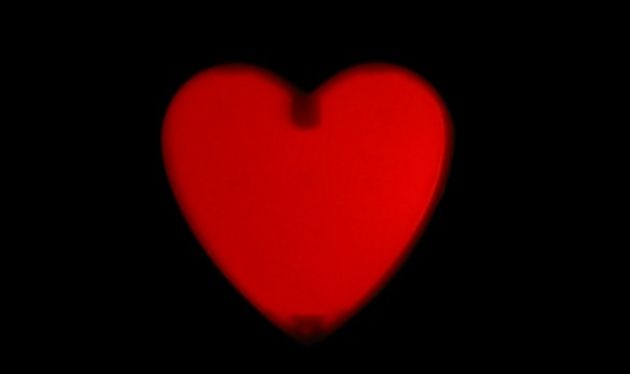
Slowly getting into master filmmaker Resnais's artistry. There are still so much to explore in his filmography!
Mandala (1981) - Im
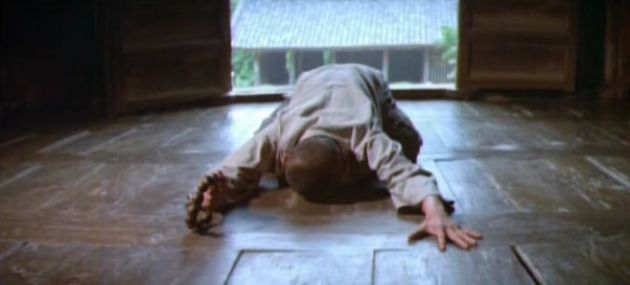
I grew up watching Im Kwontaek's films. I was too young to appreciate them back then. Beautiful, if not a little conventional storytelling. If you want good films about Buddhism, look no further than Im's films.
Heart of Glass (1976) - Herzog
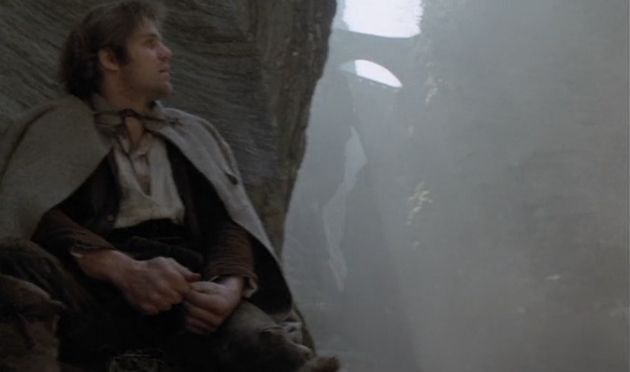
This was One of my blind spots in Herzog's filmography. As expected, a grand experience at the cinema.
35 Rhums (2008) - Denis
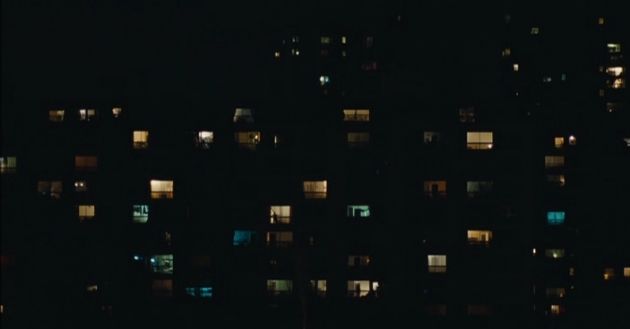
So simple yet so perfect. This quiet family drama reaffirms why Claire Denis is one of my favorite director of all time.
Caravaggio (1986) - Jarman
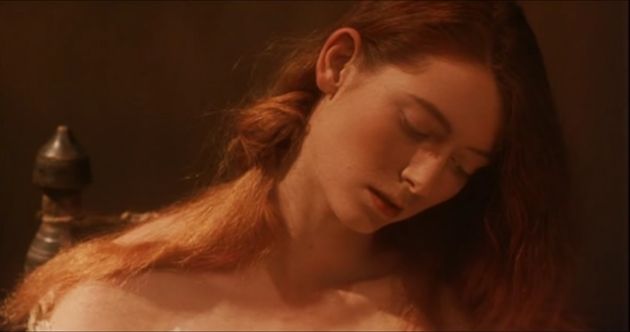
I was planning on taking large volumes of screenshots from this visually stunning film. But it turns out the dvd I got from netflix is too scratched to play on my computer. I'm seriously thinking about buying this. Jarman was a true visionary. Taking on the well known cocky post-Renaissance painter Amerighi Caravaggio's life with his painterly, dramatic style that surpasses even the best of Greenaway's bombastic visuals, he shows the painter's lust for life and disdain for what was socially acceptable in a very Catholic era. Young Tilda Swinton and Sean Bean are sculpted with theatrical light skillfully thus their youthful beauty immortalized on the celluloid forever. Nigel Terry (King Arthur in Excalibur) plays famed painter with messy private life who was attracted to many of his subjects, including young Tilda and Sean. It wouldn't have worked if it was done by any other, but when Jarman mixes old and new (modern costumes, typewriter etc), transcending time and space, it works wonders. Amazingly beautiful and playful, I am totally blown away by this.
Days of Eclipse (1988) - Sokurov
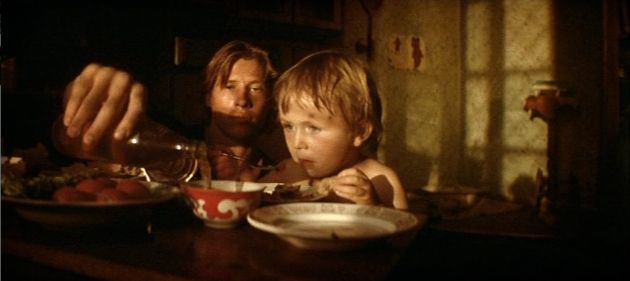
Yes, Sokurov is quite different from Tarkovsky as a director and visual storyteller. I realize that after seeing this film. It's quite hard to describe this 'Sokurovian cinema'. But this film was an eye opener.
Shame (1969) - Bergman
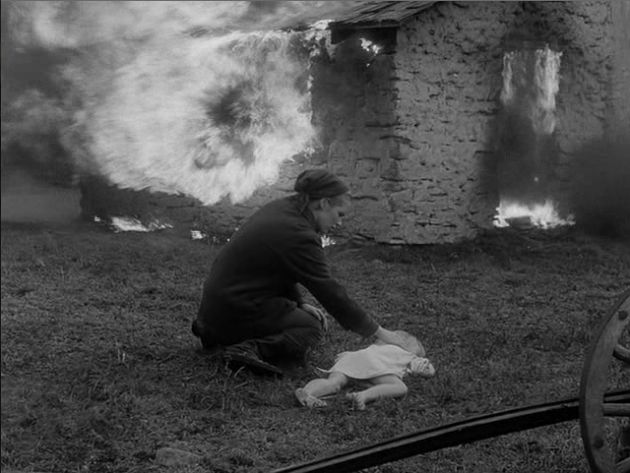
What more can I say about this? Bergman is a true master of cinema.
Directors explored:
Jacques Rivette:
Le pont du nord
Celine et Julie vont en bateau
Maurice Pialat:
A nous amours
Loulou
Police
Abbas Kirarostami:
Life and Nothing More
Taste of Cherry
Homework
The Reoprt
Hou Hsiao Hsien:
City of Sadness
Millennium Mambo
Bruno Dumont:
Flandres
Hadewijch
Hors Satan
Camille Claudel 1915
Alain Resnais:
Mon oncle Amerique
Muriel
Vous n'avez encore vu
Raymond Depardon:
Une femme en Afrique
La captive du desert
L'homme sans O'ccidental
Alexandr Sokurov:
Days of Eclipse
Mother and Son
Moloch
Hong Sangsoo:
In Another Country
Nobody's Daughter Haewon
Top 20 Discoveries 2012